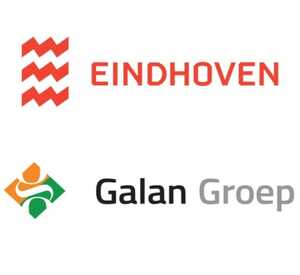Zoekcriteria
Vind jouw baan in onze 561 vacatures!
Utrecht
Beleidsmedewerker recreatie en water
Wij zijn op zoek naar een Beleidsmedewerker recreatie en water 32 - 40 uur | Schaal 11 | Bepaalde tijd met...

Den Haag
De Raad voor de leefomgeving en infrastructuur zoekt: twee junior-raadsleden
De Raad voor de leefomgeving en infrastructuur (Rli) is het strategisch adviescollege voor regering en...

Nijverdal
Directeur-bestuurder - Reggewoon
Voor Reggewoon zoekt erly een energieke bestuurder die samen met het MT bouwt aan een duurzame toekomst.


Hardenberg
Gemeentesecretaris/Algemeen directeur – gemeente Hardenberg
Wie ben jij?
Net als de gemeente Hardenberg is jouw vizier gericht op ontwikkeling. Dit vraagt...

Utrecht
Directeur internationaal Commissie mer
Profiel Directeur internationaal Commissie mer
De organisatie
De Commissie...



Utrecht
Jurist (medior) (x/v/m)
Jurist (medior) (x/v/m) NWO-I is bezig met een ambitieuze ontwikkeling van de bedrijfsvoering, waarbij...

Utrecht
Hoofd Exploitatie / Hoofd Bedrijfsvoering
Sterke organisatorische vaardigheden en het vermogen om zowel een team als de museumbeleving te transformeren.

Den Haag
Enthousiaste Senior adviseur Europees Betaalorgaan
Enthousiaste Senior adviseur Europees Betaalorgaan Rijksdienst voor Ondernemend Nederland (RVO)...


Assen, Den Haag, Roermond, Utrecht, Zwolle
Senior adviseur Europees Betaalorgaan
Senior adviseur Europees Betaalorgaan Rijksdienst voor Ondernemend Nederland (RVO) Functieomschrijving...

Veendam
Bestuurder
Acantus is een woningcorporatie in het prachtige Noordoost- en Oost-Groningen. De corporatie huisvest meer dan...


Leiden
Lid Raad van Bestuur LUMC / Decaan Faculteit Geneeskunde Universiteit Leiden
In het kort vacaturenummer : H.24.EW.WK.22 sluitingsdatum : 14-04-2024 om 12:00 uur Lid Raad van...

Utrecht
hoofdredacteur Medisch Contact
Vanwege het vertrek van de huidige hoofdredacteur zijn we met ingang van 1 juli op zoek naar een ...

Groningen
Directeur-bestuurder
Lijkt het jou leuk eindverantwoordelijk te zijn voor de stabiliteit en ontwikkeling van het Grand Theatre? Lees dan...

Uden
Directeur-bestuurder
Wil jij een uitdagende functie in een fijne werkcultuur en heb jij ontwikkelingsgerichte leiderschapsvaardigheden?...

Groenlo
Teamleider bovenbouw havo/vwo
Ben jij een verbinder met oprechte aandacht voor de mens? Kom dan ons team versterken!

's-Gravenhage
Assistent-Controller
Als assistent-controller draag je verantwoordelijkheid voor de juistheid en volledigheid van de registratie van...

Amsterdam
(Senior) beleidsadviseur bestaande bouw en duurzaamheid
Wij zijn per direct op zoek naar een (Senior) beleidsadviseur bestaande bouw en duurzaamheid Een bevlogen en...

Houten
Financial Controller
Wil jij actief zijn als rechterhand van de Manager Finance & Control? Zoek jij een baan met veel ruimte voor...

Den Haag
Operationeel HR Manager
Operationeel HR Manager De Immigratie- en Naturalisatiedienst Functieomschrijving De Immigratie- en...

Tilburg
Afdelingshoofd Planning & Control
Wil jij werken in een prachtige omgeving met gepassioneerde professionals in een organisatie met ruimte voor...

Eindhoven
Afdelingshoofd Servicebureau Sociaal Domein
Ben jij op zoek naar een baan waarmee je impact hebt op de stad en de gemeente Eindhoven? En wil je werken in een...
